Tom the Dancing Bug by Ruben Bolling for February 03, 2012
Transcript:
god-man the superhero with omnipotent powers! this week: "copyright & copywrong" god-man is preventing the holocaust of 27 billion glexitians at the hands of mekxarxt galaxy marauders, when- god-man: trouble on earth! he speeds across the cosmos to earth- god-man: that's the building! first, i'll rip these out! and now, quickly! i'll prevent the deed, just in time! caught you, evil-doer! guy: how is downloading "lady and the tramp" evil?! god-man: it was unauthorized, so that's stealing, you fiend! humans: our building! my home! man: stealing what?! when disney made the movie, they expected it to be in the public domain, today! the law changed! twice! god-man: so that's theft, lawbreaker! now, i'm off -- a bureaucrat in poland just changed a copyright term, so evil is rampant!

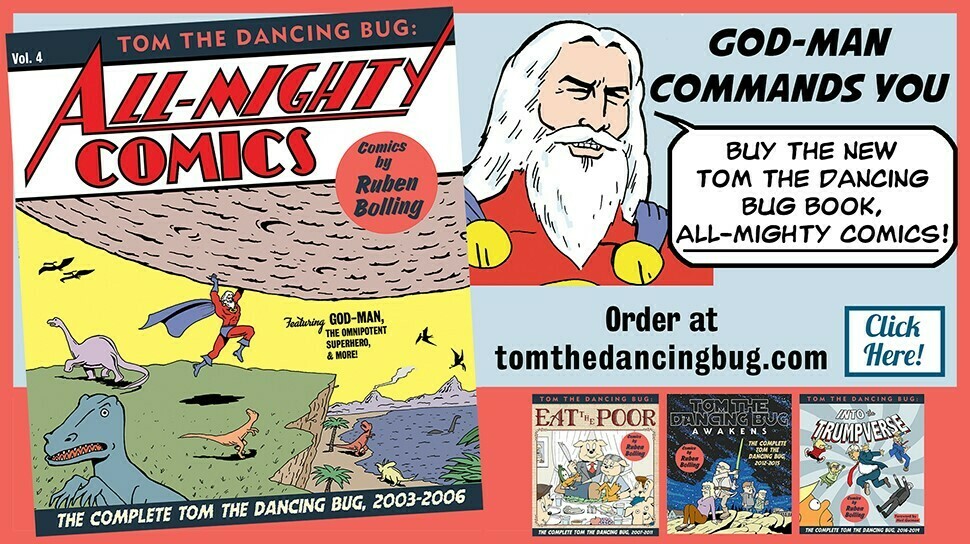
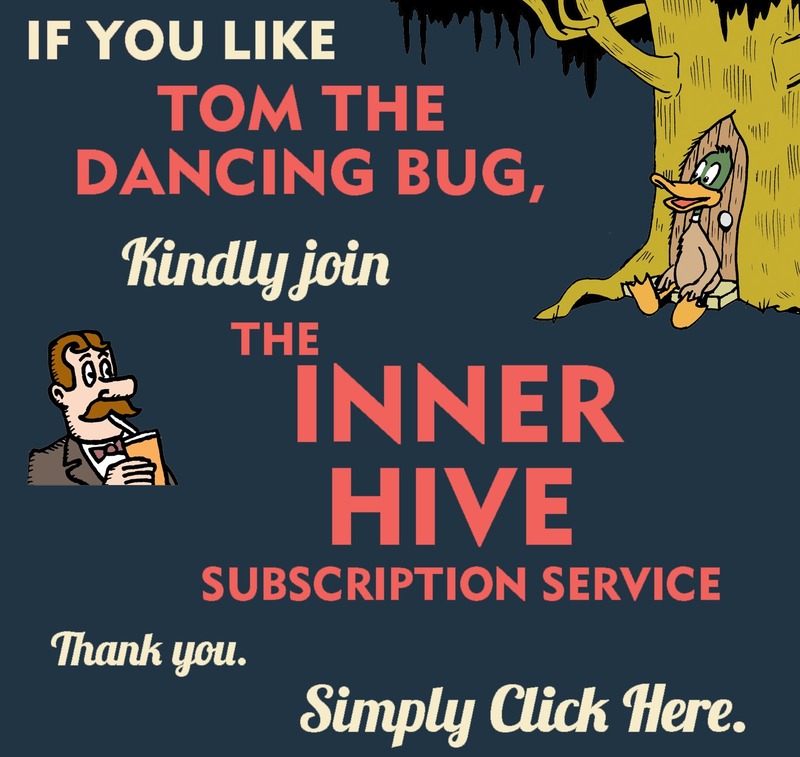
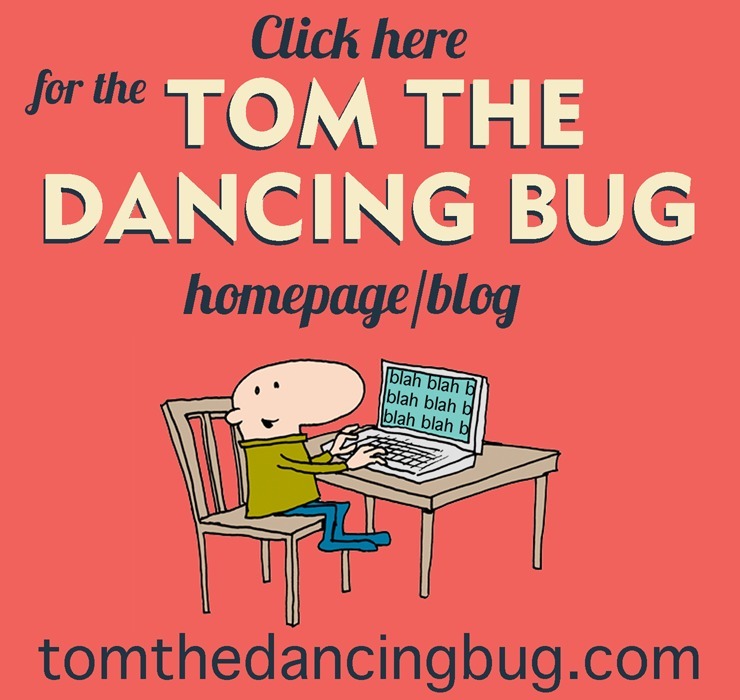
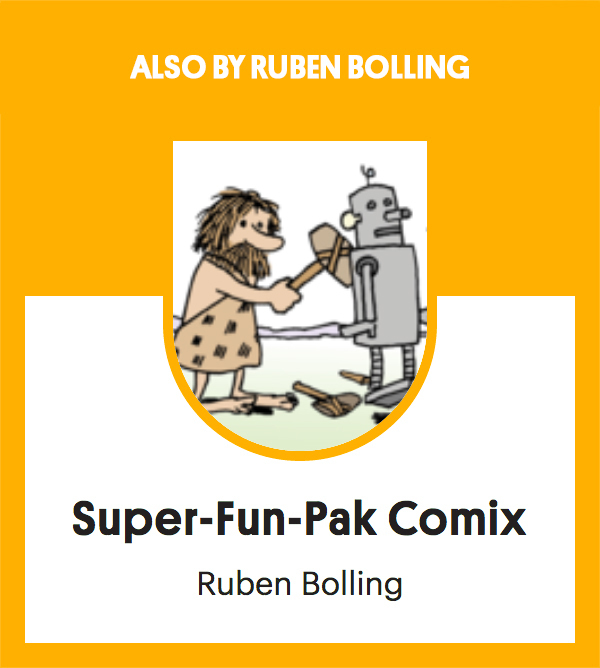
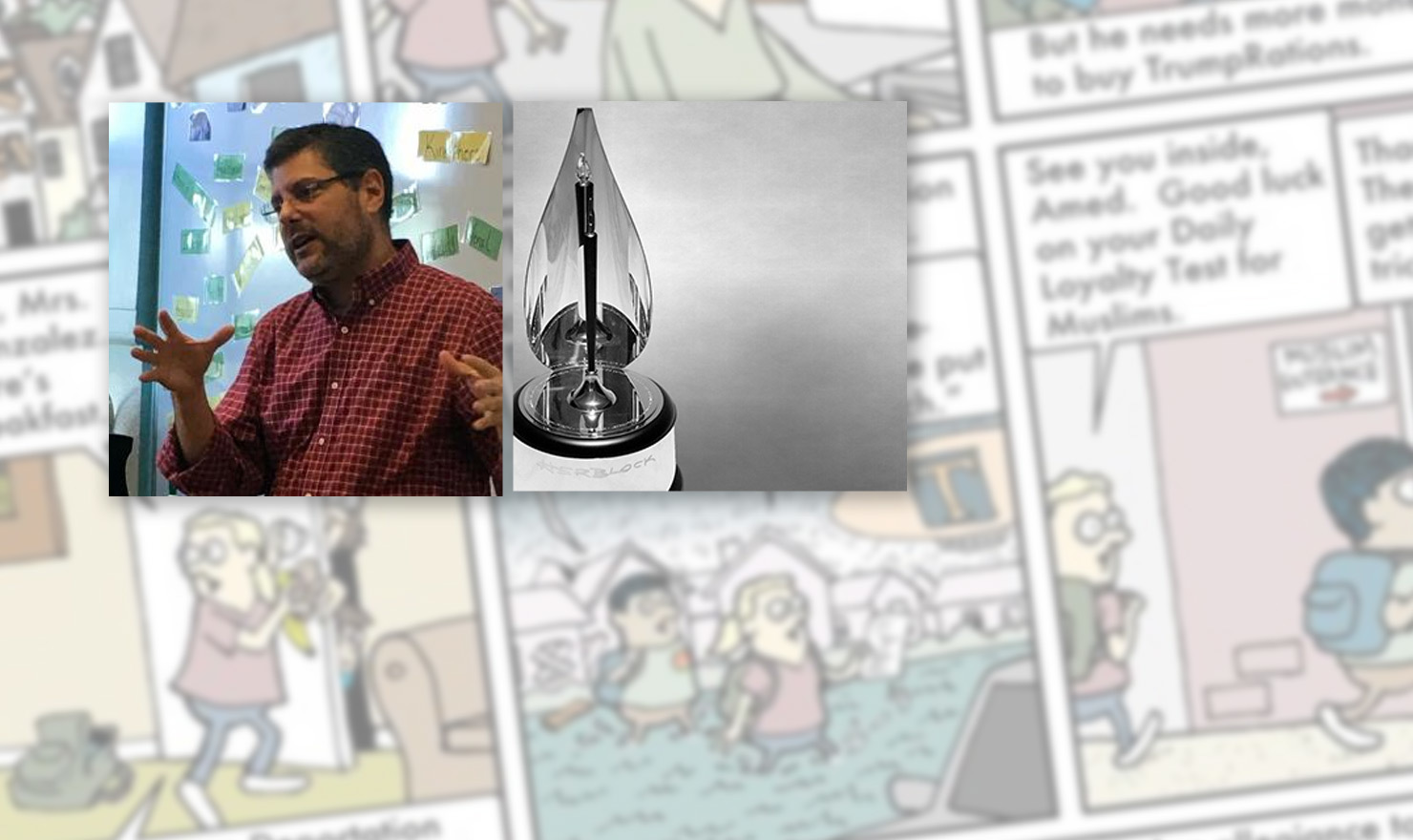
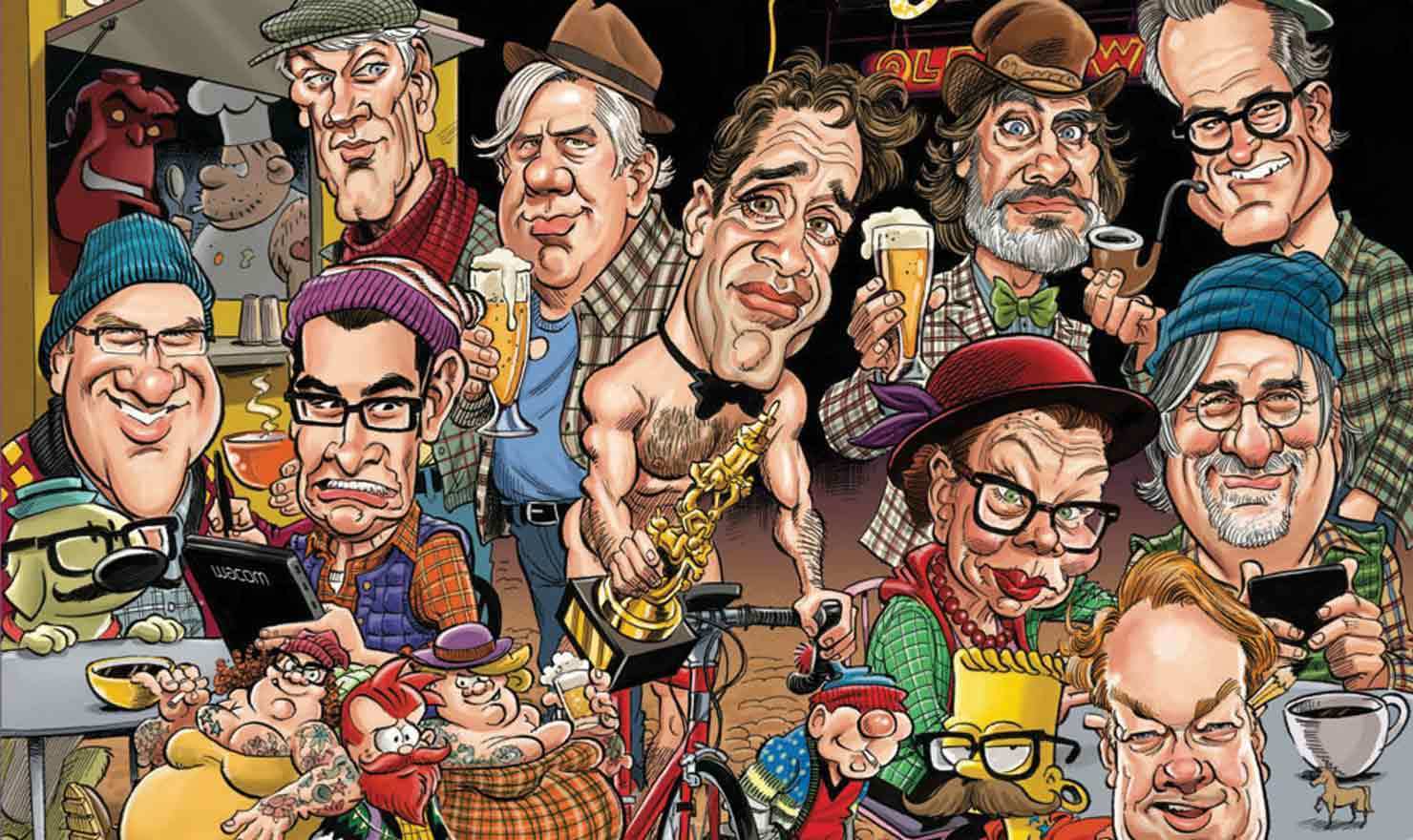
!['Tom The Dancing Bug' Turns 20: Ruben Bolling's Award-Winning 2017 [Interview]](https://assets.gocomics.com/uploads/blogs/blog_image_large_4068_7479_Tom_The_Dancing_Bug_20th_Anniversary_201706271720.jpg)
andrew_c almost 13 years ago
This is a straw manThe law is an ass but its still the lawCorporations have to enforce copyright or lose it, but are accused of being thugs when they do.Is the term to long? Of course, it’s insanely long, but changing the term to 5 years wouldn’t stop people from warezing brand new movies, songs and video games. The only copyrighted work that I can think of that should be out of copyright is “Time Fades Away” by Neil Young, released in 1973, long out of print.
andrew_c almost 13 years ago
But then every out of print album that hasn’t been transferred to CD or other format should lose it’s copyrights. Of course then the record companies would destroy the masters.
pschearer Premium Member almost 13 years ago
This raises an interesting question: Does increasing the copyright interval deny rights to people who had valid reason to expect public domain access to some product as of a certain time? If so, does this violate constitutional due process? And I wonder if there isn’t some element of ex post facto law operating here. I believe in intellectual property rights, but the devil is in the details of how best to protect them.
3hourtour Premium Member almost 13 years ago
..and according to George Carlin,there are still people in hell for that eating meat on Friday rap…
wcorvi almost 13 years ago
Would this mean the Feds will start enforcing ALL their laws?
Matthew Davis almost 13 years ago
The point of this cartoon is cleverly hidden in the background of the first panel in the bottom row. The question of whether the perp’s act was moral or legal (or should be) is ancillary to the innocent bystanders bemoaning the loss of their home.
Droptma Styx almost 13 years ago
@drklassen – spoken like someone who isn’t trying to make a living as a creative person. If I create something, I own it, and I alone have the right to decide who gets to use it for money, for free, however I choose. Nobody else has that right until I give it up. “Society at large is the co-creator of everything” – the most specious argument for theft EVER.
androgenoide almost 13 years ago
I’m pretty sure that the original argument was that a limited time monopoly on creative work would encourage the artists to produce more for the benefit of society. It was meant to be limited because society does not reap the full benefit until it passes into the public domain. One problem is determining what is a reasonable period for the duration of a copyright…. obviously twenty year old software is pretty much useless to the public even though it’s still under copyright while a fifty year old novel may still be of great value to the writer. Another issue is the suitable punishment for infringement. Laws to protect the music industry were written at a time when recording and distribution of music required manufacturing facilities, warehouses and fleets of vehicles for distribution. The recording industry (not the artist) got the lion’s share of the benefits and punishments were intended to be suitable for another company that had similar facilities… not for some kid running a world-wide distribution network from his bedroom.
fritzoid Premium Member almost 13 years ago
Everything is free now,That’s what they say.Everything I ever done,Gotta give it away.Someone hit the big score.They figured it out,That we’re gonna do it anyway,Even if doesn’t pay.- “Everything Is Free”, © Gillian Welch
Nighthawks Premium Member almost 13 years ago
next mission for Godman: Tim Tebow is on his knees and wants another touchdown.Godman to the rescue!
Toronto2 almost 13 years ago
Art is either plagiarism or revolution. – Paul Gauguin
But extensions to copyright law never should have affected works that already existed.
seablood almost 13 years ago
Doesn’t that guy who’s downloading movies look like Bill Gates?
pbarnrob almost 13 years ago
Mickey Forever! (See Spider Robinson’s story on the subject, Melancholy Elephants_. A bit more, in The Crazy Years.)
fritzoid Premium Member almost 13 years ago
“the building and electrical infrastructure received lethal damage…”
You’re the second person that’s mentioned the collateral damage to the building and neighbors, but nobody’s mentioned the 27 billion poor Glexitians, left defenseless against Mekxarxt Marauders.
Bengie25 almost 13 years ago
@Andrew_C – It may be law, but it doesn’t make it a moral, ethical, or just law.
Copyright is about encouraging the creation of content, not having a monopoly to print free money.
The issue is Copyright is so long that these large entertainment corps are turning into your classic lazy welfare person who is not longer encouraged to do anything useful, but just sit there and collect money, encouraged to only do work when they absolutely have to.
Even worse is they’re changing the laws to make it so you can’t derivative works based on their stuff.
When you have art like Jazz, nearly everything is a derivative work.
fritzoid Premium Member almost 13 years ago
I’d say the difference is semantic. If I have an idea for a screenplay, and you have the same (or similar) idea independently and yours gets turned into a blockbuster movie, I have no claim. But if I TELL YOU my idea, and then you subsequently write “my” movie I can sue you. Of course, I’d have to PROVE that I told you the idea. That’s one of the reasons some writers won’t listen to other people’s story ideas; they don’t want to leave themselves open (rightly or wrongly) to an Intellectual Property Theft lawsuit.
fritzoid Premium Member almost 13 years ago
Of course, a telling point about Intellectual Property is that charges of theft or abuse are handled by the civil courts and not the criminal courts…
jpozenel almost 13 years ago
I hope Ruben tells us one day what happened to the Glexitians. Will the Mekxarxt Galaxy Marauders be soundly punished?
hmofo813 Premium Member almost 13 years ago
The current copyright law was arrived at in such a blatantly corrupt fashion that no-one should take it seriously; it is certainly not “theft” by any rational definition to ignore artificially-extended copyrights, and in fact it is more rightly seen as an act of civil disobedience. By no legal reasoning could any change in copyright law be held to apply to works that were in existence at the time the change was effected.
fritzoid Premium Member almost 13 years ago
Yes and no (there are certainly histories of people jealously guarding their research, and disputes over who published what first). And I’d say there’s a difference between scientific/technological IP and cultural/entertainment IP, to some degree…
Anarcissie almost 13 years ago
Fritz — your idea is ‘your idea’ until you make it public. After that, it appears that you expect the state to enforce your idea of ‘your idea’ indefinitely. I don’t see why it should. If you don’t want your ideas to spread around, don’t share them with anyone. However, lots of rich, powerful people agree with you, so I hope you’re getting a cut!
Drklassen — Unfortunately, the state can propertize anything. It wasn’t so long ago that human beings could be made into property and bought and sold. The fact that Intellectual Property is a fiction doesn’t mean it can’t be made into a fact by the use of sufficient money and violence.
Tarry Plaguer almost 13 years ago
SOPA, PIPA, and ACTA. Personally, I am getting rather scared of the power The Big Six are pushing around. A quick trip to http://www.techdirt.com/ will open some eyes to just how BIG this whole thing really is.
BostonKarl almost 13 years ago
Some misconceptions about copyright:
1. You can’t copyright ideas, only expressions. Someone “stole your idea?” Too bad. Not only is that allowed, it’s the entire purpose of copyright law in the United States: to “promote the progress of the useful arts.” It exists to encourage the spread of ideas – not to lock them up.
2. It is correct that Lady and the Tramp would be public domain by now. It was created in 1955. At that time, copyright was ruled by the 1909 Copyright Act, which set copyright length to 28 years, with an optional 28 year renewal. It would have entered the public domain in 2011, had the terms not been extended.
3. Copyright is not “use it or lose it.” Trademarks work this way, copyright does not. Corporations could stop “being thugs” without losing one iota of their copyright protections, if they chose.
4. Copyright is not a “natural right,” like the right to property. It is a creature of statute, and may be granted or taken away by the public (represented by Congress) at will. As Thomas Jefferson put it: "Inventions then cannot, in nature, be a subject of property. Society may give an exclusive right to the profits arising from them, as an encouragement to men to pursue ideas which may produce utility, but this may or may not be done, according to the will and convenience of the society, without claim or complaint from anybody. "
5. Copyright infringement is not theft. This was decided conclusively in Dowling v. United States: “interference with copyright does not easily equate with theft, conversion, or fraud. The infringer of a copyright does not assume physical control over the copyright nor wholly deprive its owner of its use. Infringement implicates a more complex set of property interests than does run-of-the-mill theft, conversion, or fraud.” This is not to say it is legal, or even moral, but theft it is not. In fact, infringement is punished FAR worse than theft, especially nowadays.
Hope that clears some things up!
fritzoid Premium Member almost 13 years ago
I’ve come up with a superhero called “Captain Jehovah.” He looks NOTHING like Bolling’s “God-Man” (his cape is gold, not purple, and he’s clean-shaven), and he comes down from outer space to kill people for driving on the Sabbath and/or masturbating. I’m going to make a blockbuster movie, to tent-pole the 2013 summer releases (it’ll open with an animated short, “Fortunate Fowl”).
Maybe I had this idea 20 minutes ago, and maybe I had it 20 years ago, you have no way of knowing. But it’ll make a billion dollars, none of which Bolling is entitled to share. And if anybody out there cries “Hey, that’s just a ripoff of ‘God-Man’”, that person better swear on a stack of Bibles that they’ve never illegally downloaded copyrighted materials (and if you lie after swearing on Bibles, Captain Jehovah will kill you).
Anarcissie almost 13 years ago
fritzold — If by ‘write a song’ — your mean you invent the idea of a song, totally invent its rhythms, musical scales, language, verse forms and so on ex_nihilo — I guess it’s all yours. Otherwise, it seems that morally at least you owe something, indeed, almost everything, to the cultural community from which you took all that supporting material.
However, as I said to Drklassen, this sort of property isn’t about moral right, it’s about force and the money which buys it.
AnitaGig almost 13 years ago
Nina Paley, the creator of the movie “Sita Sings the Blues” has interesting things to say about copyright and how it can hurt creative artists who can’t afford to pay for rights. So i do think the “Devil is in the details” toosee www.sitasingstheblues.com"
fritzoid Premium Member almost 13 years ago
“There are two kinds of scientists: people who do science so that they can get ahead in life, and people who get ahead in life so that they can do science.”
I’d imagine there are also gradations between the two.
By the same token, there are artists and entertainers who create because they must, and those who create in the hopes of making it big (again, with many gradations betwween the two), and I respect the choice of those who simply want their stuff “out there” but that’s their choice to make and nobody else’s. In the arts, one of the key markers of “having arrived” is when you can simply support yourself (and your family) with your work, and can quit your day job. Writers, musicians, painters, it’s a tough row to hoe if you can only do it in your “spare time.” Particularly with novelists, one moderate success can support you for the YEARS it might take you to write your next book.
If you’re REALLY successful, then of course you can afford the lawyers (or your publishers can afford them) to protect your copyrights, but the laws are at least intended to protect the little guys as well as the big guys. If Disney sues a hospital because they’ve painted Mickey Mouse on the walls of the children’s cancer ward, that’s assholishness but assholishness isn’t against the law. But if Purina plasters my avatar on cans of Blue Coyote™ Cat’s Liver in Gravy, I’ve got cause to bring an action.
fritzoid Premium Member almost 13 years ago
PS: Check out the movie “Flash of Genius”, about the basement tinkerer (he was a college engineering teacher) who came up with the system for intermittent windshield wipers that ultimately became the industry standard. The big automakers stole his idea, and he spent years litigating against them (ultimately successfully), not so much for the money as for the simple acknowledgement that he was the father of that idea (he turned down huge settlement offers that offered him millions of dollars but no credit). Certainly, I don’t know of any artist OR scientist who’s comfortable with SOMEONE ELSE getting the credit for their “brain children.”
That movie was dedicated to the “little guys”; in that case it was science/technology, but the principle holds for scribblers, doodlers, and noodlers everywhere.
Grover Premium Member almost 13 years ago
No comment
Clymchron almost 13 years ago
Wikipedia (“Copyright”) – In the Middle Ages in Europe, there was generally a lack of any concept of literary property due to the general relations of production, the specific organization of literary production and the role of culture in society. The latter refers to the tendency of oral societies, such as that of Europe in the medieval period, to view knowledge as the product, expression and property of the collective. Not until capitalism emerges in Europe with its individualist ideological underpinnings does the conception of intellectual property and by extension copyright law emerge. Intellectual production comes to be seen as a product of an individual and their property, rather than a collective or social product which belongs in the commons. The most significant point is that under the capitalist mode of production, patent and copyright laws support in fundamental and thoroughgoing ways the expansion of the range of creative human activities that can be commodified. This parallels the ways in which capitalism led to the commodification of many aspects of social life that hitherto had no monetary or economic value per se.
georgeshute almost 13 years ago
WRONG. Copyright law in 1955 was 28 years initial with a renewal of another 28 years. So, Lady & The Tramp would be public domain by, DUN DUN DUN! 2011.
Currently, copyright can be held for the life of the creator plus 70 years. Corporate copyright can be held at time of copyright until 120 years. Our founding fathers set copyright at 14 years initial, plus 14 years renewal.
fenneuter over 12 years ago
Originla US copyright was life of the creator PLUS 50 years so that his/her heirs could profit from their relative’s works, for a reasonable amount of time. Now it’s an additonal 70 years after the death of an individual creator. Why shouldn’t their family have protection after their death?
HippyDippyWeatherman 12 months ago
Hey, I like that song!